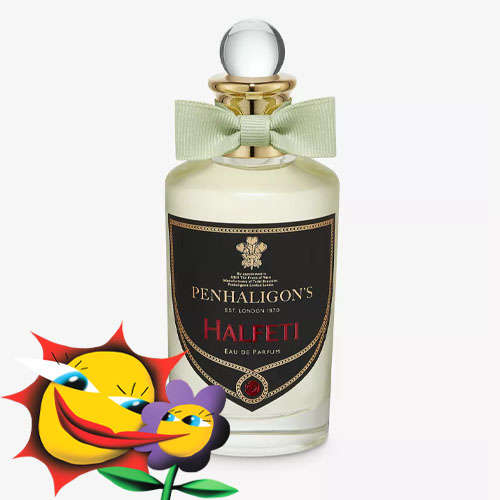- Australia / AUD $
- Canada / CAD $
- China / CNY ¥
- France / EUR €
- Germany / EUR €
- Hong Kong SAR China / HKD $
- Ireland / EUR €
- Italy / EUR €
- Japan / YEN ¥
- Kuwait / USD $
- Macao SAR China / HKD $
- Netherlands / EUR €
- Qatar / USD $
- Saudi Arabia / USD $
- Singapore / SGD $
- South Korea / KRW ₩
- Spain / EUR €
- Taiwan / TWD $
- United Arab Emirates / USD $
- United Kingdom / GBP £
- United States / USD $
- Not yours? Read more
Tell us what you think
Shop in your local currency and language
You are currently in United States US / USD $ store
- English
- English
- English
- English
- English
- English
- English
- English
- English
- English
- English
- English
- English
- English
- English
- English
- English
- English
- English
- English
- English
Did you know that we deliver to 130 countries or regions and offer a range of delivery options to suit you wherever you are in the world? Find out more
Sign up once to our Selfridges+ service and you can enjoy unlimited deliveries wherever you are in the world. FIND OUT MORE
International delivery
With almost everything on selfridges.com available for International Delivery, you can send your order to 130 countries or regions around the world, including North America, Australia, the Middle East and China.
Although we only offer 20 currencies to browse in online, you can still deliver to all of the following countries or regions:
- Algeria
- Andorra
- Antigua and Barbuda
- Aruba
- Australia
- Austria
- Azerbaijan
- Bahrain
- Bangladesh
- Barbados
- Belarus
- Belgium
- Belize
- Bermuda
- Bolivia
- Botswana
- Brunei
- Bulgaria
- Cambodia
- Canada
- Cayman Islands
- Chile
- China
- Colombia
- Costa Rica
- Croatia
- Cyprus
- Czech Republic
- Denmark
- Dominica
- Dominican Republic
- Ecuador
- Egypt
- El Salvador
- Estonia
- Finland
- France
- French Guiana
- Germany
- Gibraltar
- Greece
- Grenada
- Guadeloupe
- Guatemala
- Guernsey
- Guyana
- Honduras
- Hong Kong
- Hungary
- Iceland
- India
- Indonesia
- Ireland
- Israel
- Italy
- Jamaica
- Japan
- Jersey
- Jordan
- Kazakhstan
- Kenya
- Kuwait
- Laos
- Latvia
- Lebanon
- Lesotho
- Liechtenstein
- Lithuania
- Luxembourg
- Macau
- Malaysia
- Maldives
- Malta
- Martinique
- Mayotte
- Mexico
- Monaco
- Montserrat
- Morocco
- Myanmar
- Namibia
- Netherlands
- New Zealand
- Nicaragua
- Nigeria
- Norway
- Oman
- Pakistan
- Panama
- Paraguay
- Peru
- Philippines
- Poland
- Portugal
- Puerto Rico
- Qatar
- Reunion
- Romania
- Rwanda
- Saint Kitts and Nevis
- Saint Lucia
- Saint Martin (French part)
- San Marino
- Saudi Arabia
- Serbia
- Singapore
- Slovakia
- Slovenia
- South Africa
- South Korea
- Spain
- Sri Lanka
- Suriname
- Swaziland
- Sweden
- Switzerland
- Taiwan
- Tanzania
- Thailand
- Trinidad and Tobago
- Turkey
- Uganda
- Ukraine
- United Arab Emirates
- United Kingdom
- United States
- Uruguay
- Venezuela
- Vietnam
BY ANISH PATEL
London chef Jackson Boxer talks kitchen culture, raw ingredients and growing up in a food dynasty as he prepares to open his new restaurant at Selfridges London.
If there’s anyone who knows what Londoners want when they eat out, it’s Jackson Boxer. The chef and restaurateur is the mastermind behind two of the capital’s most popular restaurants. There’s his retro take on English classics at Brunswick House in Vauxhall, which he opened in 2011, followed by Notting Hill’s Orasay in 2019, which serves some of the best seafood in town. Then, in 2021, came Below Stone Nest, co-owned with his brother Frank (of Frank’s Cafe fame), which plates up British food with a strong seasonal bent. Now, the 38-year-old is prepping our palates for his new restaurant in Selfridges London. He’s not a big fan of shopping, but he really cares about food…
What role did food play in your life when you were growing up?
“I had a very loving childhood. My parents were young – in their early twenties when I was born – and had figured out only exactly as much as most people have at that age. However, they loved me and my brother, and our home life was pretty magical. We shared our house with lots of other people, fairly communally, and the kitchen was the centre of the home. I did most of my early growing and crawling around the kitchen floor as people cooked, chatted, made coffee, ate, drank and danced. That sense of food being this binding force, drawing us together, and drumming out the rhythm of a shared daily existence, was something deeply engrained in me.”
When did you discover that food is your love language?
“As with anything you’re born with, this sense of cooking and eating as a gentle but constant reinforcement of our shared affections for, and obligations to, each other only became significant when I started to experience its absence. Adolescence, which I’m not sure very many people find easy, was quite hard for me. I was bookish, shy, introverted, awkward, desperate to have friends and fun, but deeply unsure of myself. The loneliness of that period of my life drew me to food, which seemed to conjure a vitality and sparkle which I was otherwise deprived of. I started reading cookbooks, most notably Elizabeth David, Richard Olney, Simon Hopkinson and, of course, my grandmother Arabella Boxer, and, finding in these books something deeply alluring, sensual, exciting and mysterious, in due course I started cooking from them. To be blessed with a childhood full of love and innocent of suffering is a beautiful thing. To be left adrift by the alienating effects of teenagehood is a painful but necessary aspect of growing into independence. I could no longer love, or be loved, with the easy simplicity of an infant. In food, I found something I could make my own, invest care and attention in, use to articulate feelings I no longer felt capable of expressing with words (but desperately wanted to offer), and receive. It gave me pleasure and pride, helped me learn not to hate myself, and gave me my first taste of the interesting possibilities of adult maturity.”

“There’s an alchemical quality to cooking, taking raw ingredients and using love to transform them into potent bursts of emotional pleasure, but equally that’s true of spaces.”
Describe the ethos of your restaurant in Selfridges London.
“Though first and foremost I’m a cook, and cooking makes up the majority of my daily work, as I’ve gotten older, and taken it more seriously, it’s also expanded to encompass the messy task of building restaurants. I love how the experience of food is impacted by so many other mercurial qualities – the light, the architecture of a space, the music, the noise of other diners, the feel of the upholstery on which you’re sitting – and building restaurants enables you to play with all these elements, to be constantly tweaking and fine-tuning them, in order to invest that level of care and attention that makes everyone who walks into the space feel immediately transported out of themselves, to somewhere magical. There’s an alchemical quality to cooking, taking raw ingredients and using love to transform them into potent bursts of emotional pleasure, but equally, that’s true of spaces. A dull room, sitting empty and forlorn, can take on a deep resonance by the simple addition of a table, two chairs, a candle and some cutlery.”
How does it feel to be running your first restaurant at a department store, and how do you think it will add to the Selfridges experience?
“I am, before I’m anything else, a Londoner, born on the top floor of St Thomas’ Hospital, overlooking the river and the Palace of Westminster, schooled here, grown here, utterly convinced that, while there are many things about London I find ugly, mean, corrupt and degrading, it’s still, to me, the most beautiful, chaotic mix of people I’ve ever encountered, and in its discordant, messy cosmopolitanism, the place I continue to make my home, to raise my kids in, and fight to make as beautiful and interesting as I’m able. Selfridges fascinates me. I love the scale; the crowds; the way it smells; the way it sounds; the smooth, constant glide of those crisscrossing escalators. I don’t really care too much about shopping, or things, but I love people, and Selfridges is absolutely full of the most wonderful array of them.”
Where do you go for inspiration when you’re thinking about a new menu?
“I sit in the dining room of the place where I’m going to cook and imagine what I’d most like to eat.”
Quality and provenance are hugely important to you. What makes good ingredients?
“There’s little more dispiriting than cooking with poor ingredients, and a huge amount of successful cooking is really just astute shopping. That said, I get almost all of my ingredients directly from their producers. If cooking is hard, laborious, demanding and exacting, if cooking is an act of love, it is nothing – nothing – compared to the demands of growing, of fishing,
of farming.”
Sobriety is a big part of your personal journey. How has it changed the way you run your restaurants?
“I stopped drinking five years ago. I drank, and lived, a lot in my twenties. It was urgent and thrilling and fun and messy. In my thirties, that became something else. I needed desperately to evolve, to learn another way to be. I was looking for the world to give me something else. In stopping drinking, I understood that actually what I was looking for was, in fact, a way to give, not to receive.”
In what way is cooking cathartic for you?
“Cooking is exhausting. In order to do it well, you have to give it everything. In its essential, multi-sensorial nature, it consumes not just our conscious thoughts but our unconscious besides. In order to do it well, you have to not only give it all of your attention but commit your inattention, too. This is why it’s such a potent means of emotional communication. We can invest so much, and so fluently, and it takes so much, so easily.”
“I don’t really care too much about shopping, or things, but I love people, and Selfridges is absolutely full of the most wonderful array of them.”
Every kitchen has something unique about it – what would you say makes yours different?
“The greatest thing a kitchen can ever have is an unbreakable sense of shared purpose. If everyone in a kitchen conducts themself in a spirit of mutual respect and collaborative endeavour, it doesn’t matter if you don’t even have a stove, or an oven – if you’re just building salads, that food will be the product of something beautiful, and will be beautiful as a result.”
You’re not interested in social-media buzz. What’s the most important thing to you when running a restaurant?
“Food is an incredibly effective means of communicating love. It predates language, and I would argue that you can use food to express a whole range of human emotion more vividly, more articulately, more honestly, than words could ever allow. In cooking food, we’re giving people the excuse to sit down at a table with someone they like and share their company, while feeling cared for and considered. When those simple things are done right, they are utterly transformative, and beautiful, and the only thing I really care about.”
You’ve worked in the business for well over a decade now. How would you describe your food in a few words?
“The older I get, the more interested I become in simplicity and purity – saying the greatest amount with the fewest gestures possible.”
What do you think about the London food scene right now, and where’s your favourite place to eat when you’re not in the kitchen or at home?
“I think, right now, Planque is probably my favourite place to eat in London. It’s in a very beautifully converted archway under Haggerston station, and though it’s fundamentally a wine bar, the food is so extraordinarily good that even a lapsed sinner like myself can find huge pleasure in it.”
Jackson Boxer at The Corner in Selfridges London opens late September 2023.
Thanks to yell for lending us the name Yellow Pages.














 Chef’s kiss
Chef’s kiss
